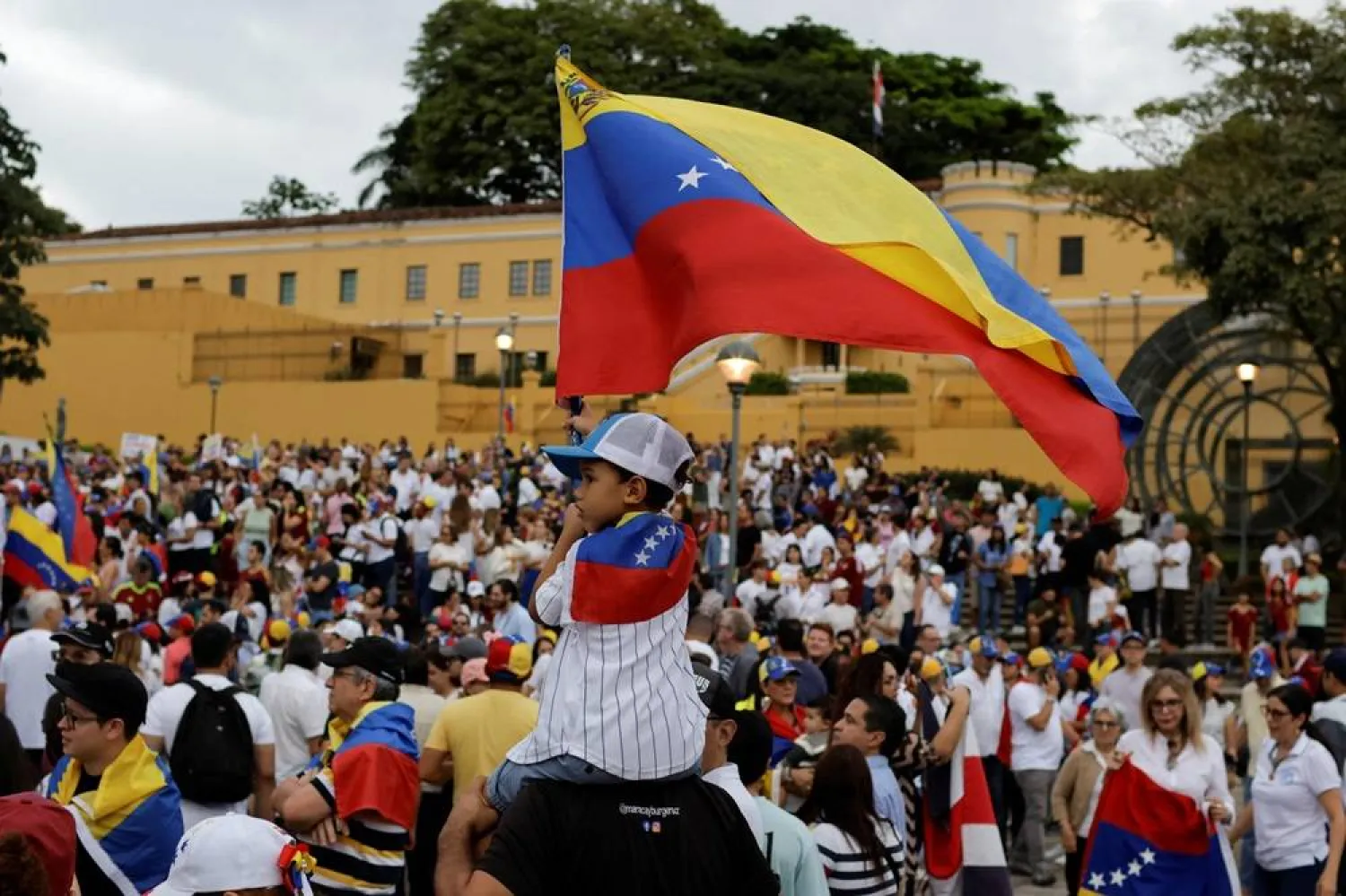Venezuela's political opposition and its supporters gathered in cities around the country on Saturday to demand recognition of what they say is their candidate's resounding victory in a presidential vote nearly three weeks ago.
The country's electoral authority, considered by the opposition to be an arm of the ruling party, has said President Nicolas Maduro won his third term in the July 28 contest, with just under 52% of the vote.
But the opposition, led by former lawmaker Maria Corina Machado, has published online what it says are 83% of voting machine tallies, which gave its candidate Edmundo Gonzalez a hearty 67% support.
The disputed vote has thrown the economically beleaguered nation into political crisis, and a government crackdown on protests has led to at least 2,400 arrests. Clashes connected to the protests have also led to at least 23 deaths.
The international community has offered a raft of suggestions for overcoming the nearly three-week-old election crisis - including a new vote - but most have been rejected outright by both the ruling party and opposition.
In the capital Caracas, thousands gathered in the eastern part of the city along its main thoroughfare.
Standing on a truck in the center of the crowd, Machado called for independent, international verification of the election and for her supporters to stay in the streets.
"There is nothing above the voice of the people and the people have spoken," she said.
Jesus Aguilar, a 21-year-old theology student, said he turned out to support the opposition in hope of a better future: "We know that with this government there are no possibilities for growth. I've even seen myself trying to leave the country."
In cities across the country, Venezuelans were in the streets. In Maracaibo, Venezuela's once oil-rich city in the northwest, hundreds had gathered by 9 a.m. (1300 GMT).
"We have already been through the worst, we don't have any more fear," Noraima Rodriguez, 52, told Reuters. "My daughter died because there were no medical supplies in the university hospital. I have nothing to lose, but I want a future for my grandchildren."
In the cities of Valencia, San Cristobal and Barquisimeto, hundreds demonstrated, many waving Venezuelan flags, protest signs or copies of voting tallies. In Maracay, about 110 km (70 miles) west of Caracas, about a hundred protesters were dispersed with tear gas.
From Bogota to Madrid, the Venezuelan diaspora turned out in droves. In downtown Mexico City, nearly 1,000 people gathered at the central Plaza de la Revolucion. "This is the moment for a free Venezuela," said Jesus Mata, 30, a street vendor who arrived in Mexico two years ago.
Motivated by economic and political crisis, he was among tens of thousands of Venezuelans to cross the treacherous jungle between Colombia and Panama known as the Darien Gap, notorious for robberies, kidnappings, rapes and other dangers.
"I hope for an end to 25 years of darkness, that there is freedom so that the almost 8 million Venezuelans who are outside the country can go back home," he added.
Maduro has presided over economic collapse, with a loss of over 73% of Venezuela's gross domestic product since 2013, according to researchers from the Institute of Superior Administration Studies in Caracas.
At Miraflores Palace after a march in support of the government, Maduro promised 8% growth this year and railed against international critics and the opposition.
"We have won the right to make whatever future we want in Venezuela, however we want, and no one can stick their noses in Venezuela," he told a crowd waving Venezuelan flags. "I do not go around giving advice to anybody in the world about what to do with this country or that country...the door will be slammed on anyone who pokes their nose into Venezuela."
The opposition is still pushing for recognition of its victory, but its options are narrowing as international attention moves elsewhere, opposition sources and analysts told Reuters this week.
Many Western countries have urged full publication of results, while Russia, China and others have congratulated Maduro on his victory.
Washington, which hardened oil sanctions in April on the OPEC member for what it said was Maduro's failure to comply with a deal on electoral conditions, and other Western countries are showing little sign of swift, tough action over what many of them have condemned as voting fraud.
Latin American leaders will discuss the crisis this weekend when many are in the Dominican Republic to attend the inauguration of that country's new president, Panama's president has said.









